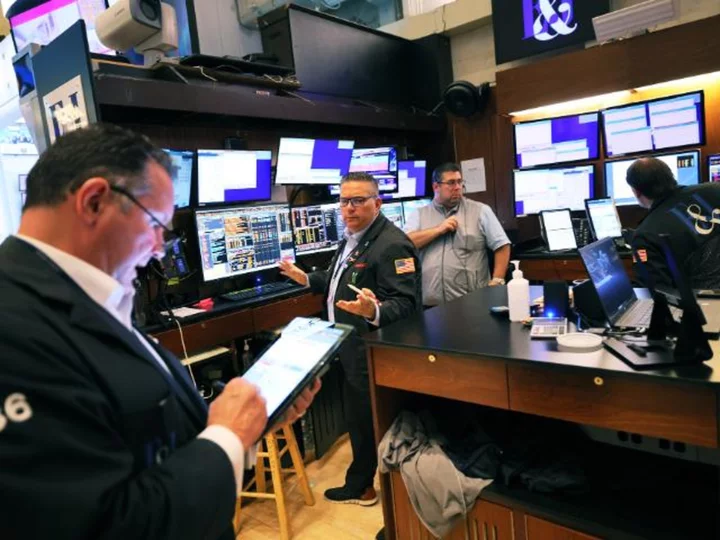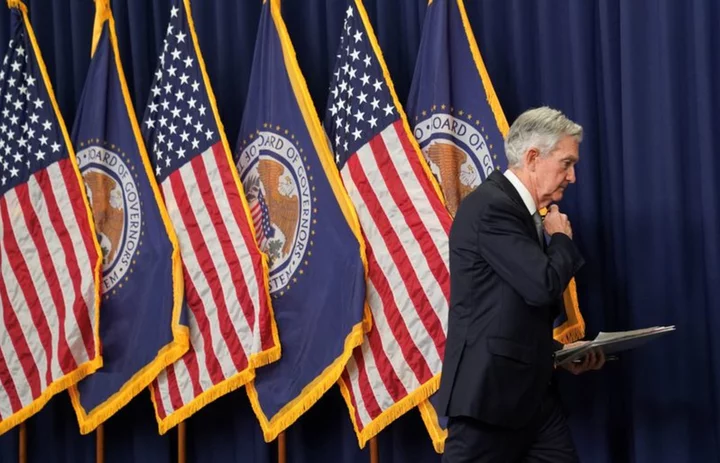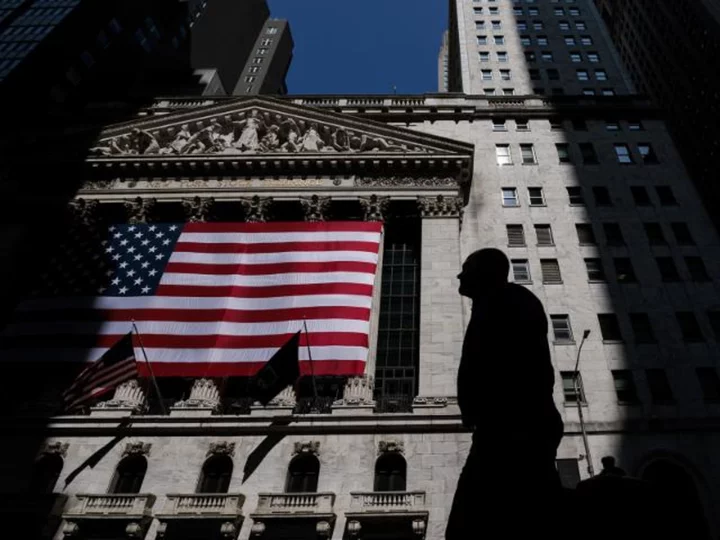Many investors are running a sizable profit this year -- the S&P 500 is about 14% higher in 2023. But market losses have been piling up over the past month, particularly on growing fears of contagion from an economic slowdown in China. Inflation, Russia's war in Ukraine and weakness in America's banks also have Wall Street spooked.
The Nasdaq has dropped by 7.7% in August and the S&P 500 is down nearly 5% this month. On Thursday, the Dow closed lower than its 50-day moving average, a key threshold that investors often interpret as a bearish signal. The index is down 3% this month.
The CNN Business Fear & Greed Index, which looks at seven indicators of market sentiment, is showing signs of fear on Friday for the first time since March. That's a big change from just one month ago, when the index was in "extreme greed" territory.
So what's going on?
China's economy is in trouble
China's souring economy spells bad news for US stocks, and potentially for your portfolio.
Chinese consumer spending, factory production and investment in long-term assets (such as property, machinery or other goods) all slowed in July, according to the country's National Bureau of Statistics.
Youth unemployment in the world's second-largest economy has repeatedly hit record highs. Earlier this week Beijing decided to suspend the release of that monthly data altogether.
And an ongoing real estate and debt crisis has some investors fearing the potential of a "Lehman-like" moment for China.
Tensions between the US and China, meanwhile, have been on the rise as the world's two largest economies clash over issues ranging from trade policy and technology, to Russia's invasion of Ukraine.
"For most of the last two decades, China's economic growth has been a major driver of the global economy," said Alex Etra, a strategist at data analytics firm Exante. That means that if China's economy slows down, global economic growth slows down.
"When global economic growth slows down, that tends to be negative US equities. And some of that has to do with direct exposure of US companies' sales in China and with China being a major consumer of commodities."
US-based companies doing business in China stand to lose if the economy there continues on a downward trajectory. Companies like Apple, Intel, Ford and Tesla all have large manufacturing ties to the country. Others, like Starbucks and Nike, rely on Chinese consumers.
Blame the Fed
The Federal Reserve has bumped up interest rates by more than 5 percentage points over the past year and a half to fight soaring inflation.
As recently as a few weeks ago, Wall Street seemed almost certain that the Federal Reserve was just about finished with that rate-hike regimen — which many economists had assumed would plunge the US into recession.
But a string of strong economic data has challenged those notions.
The US economy has been resilient: The Atlanta Fed has estimated a whopping 5.8% annualized third-quarter GDP growth rate, unemployment remains low and consumer spending is strong.
Fed officials are concerned that prices could continue to rise. At their July meeting, they said more interest rate hikes might be necessary soon, according to meeting minutes released this week.
Investors aren't happy about that. On Thursday, the yield on the US 30-year Treasury bond hit its highest since 2011 and the 10-year note notched its best return since October 2022. Bond yields go up as bond prices fall.
Geopolitical turmoil
Global inflation is finally coming down, but heightened geopolitical tensions threaten to raise food and oil prices across the globe. Russia's invasion of Ukraine continues to stoke fears of rising commodity prices, global economic instability and uncertainty around security.
Jamie Dimon, CEO of JPMorgan Chase, has cited the ongoing war as his greatest concern on many occasions. Most recently, he told CNBC two weeks ago that the world is seeing "serious" levels of "nuclear proliferation and nuclear blackmail." This level of geopolitical chaos, he said, hasn't been seen since World War Two. "The world's not that safe."
Banks are still at risk
Fears of contagion still exist around the regional banking crisis in March: The fund controlled by investor Michael Burry, of "Big Short" fame, sold 150,000 shares of First Republic Bank as well as holdings in Huntington Bank, PacWest and Western Alliance as part of a major realignment in his portfolio that included a $1.6 billion bet against the broader stock market.
Big banks could also be in hot water: Bank shares fell on Monday following reports that Fitch Ratings warned of an additional downgrade of the US banking industry that could affect the ratings of several large American lenders.
The August Doldrums
Another reason for recent turmoil: Few investors are paying attention.
The well-known Wall Street adage says "sell in May and go away" because the summer, and August in particular, marks a historically volatile period for the stock market. That's largely because so many investors take vacations and there are decreased trading volumes. This reduced activity can lead to increased volatility.
On average, August has been the worst-performing month for stocks since 1986, according to Morningstar.
This August has been busy for late summer. It's been chock full of economic data and big corporate reports. That means the dwindling number of traders who remain were trying to keep things afloat in a particularly volatile environment.









